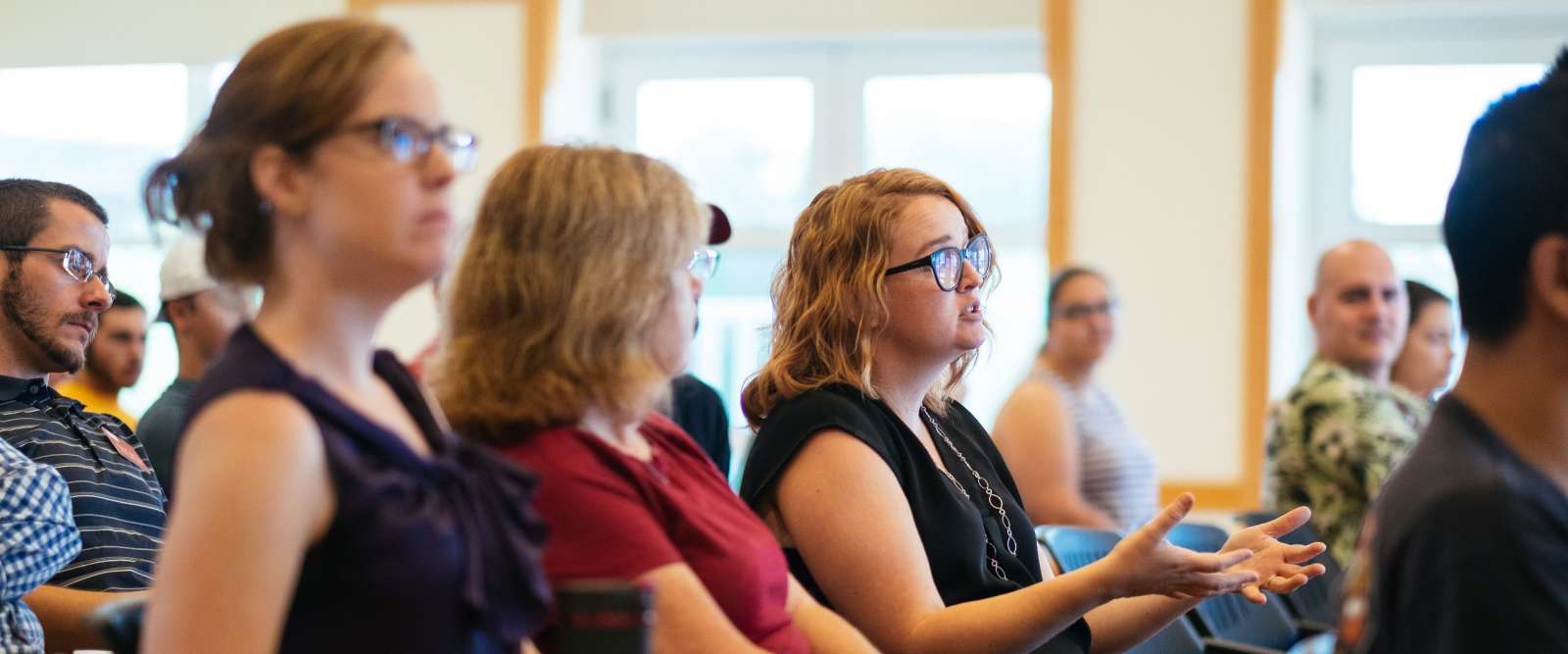Overview
When it comes to using an international lens through which to study sociology, Keene State’s sociology program is a leader. We attract educators from around the world, creating a rich, lively, and diverse learning community for students. International perspectives, work in the community, and collaborative student/faculty research projects are hallmarks of the Sociology Department. Students who study at Keene State also gain a liberal arts education that broadens their perspectives.
Sociology students are provided with ample opportunities to get out of the classroom and into the cultures they are studying. Faculty-led student field trips abroad to places such as Poland, Slovakia, Czech Republic, Hungary, Bosnia, Rwanda, Belize, and Nicaragua are a highlight for students.
In addition to our emphasis on global and international scholarship, we emphasize the importance of finding ways to make a positive impact in the Monadnock Region. Students participate in department-sponsored internships with local organizations and businesses, and classes are designed specifically to incorporate community studies and service work. Many students work with community organizations such as Keene Housing, Monadnock Family Services, and 100 Nights homeless shelter.
The sociology program emphasizes the development of research and data analysis skills. Students are trained to design and undertake research projects sometimes involving primary data analysis using quantitative and qualitative data.
Whether in the classroom, out in the community, or traveling the world, the faculty’s first goal is to engage with students above and beyond class-related activities. Faculty members regularly work with students on collaborative faculty/student research. Students present their work during academic conferences and work alongside faculty to publish their research. Faculty also support the Sociology and Anthropology Club, which is made up of students from the program who want to engage in the subject matter on their own outside of class.
Program Options
Students interested in sociology at Keene State may choose to major in sociology, major in anthropology/sociology, or minor in sociology.
Sociology majors study social and cultural forces that shape individual and group behavior using a variety of scientific methods such as surveys, interviews, observation, and content analysis. Core courses provide excellent training in sociological concepts, theories, and methods. Electives focus on topics like the environment, popular culture, families, inequalities, race and ethnicity, crime and deviance, anthropology, and global society. Sociology majors may also engage in community research, service-learning projects, internships, and travel through coursework.
Sociology students are also encouraged to a second major or minor in a related discipline. Several of our students are pursuing a dual major in sociology and criminal justice studies (CJS) as there is a significant overlap between them. This broadens their employment prospects, and allows them to pursue a wide variety of occupations in the social services and criminal justice fields (non-profits, government agencies). Sociology students pursuing a second major in political science may pursue occupations in the realms of public policy and politics at the local, state, or federal levels. Students also sometimes major in humanities disciplines such as communications or film studies that might help them become documentary filmmakers – a field with tremendous potential especially with development of new technologies for production and distribution of video content. Students combining sociology and women’s and gender studies develop insight in gender issues that will give them an entry to jobs in governmental, intergovernmental (e.g. UN organizations), and non-governmental organizations. Students interested in working in human resources or finance may opt for a second major in management or economics.
The anthropology/sociology major prepares students for the social and professional demands of living in an increasingly multicultural world. You’ll examine what it means to be human, how we evolved physically and developed culturally over time, how society and culture influence behavior, and how culture provides a lens through which people understand and interpret their world. A primary focus of the major is helping students develop a set of practical skills and conceptual tools necessary for continuing to learn about other cultures, sub-cultures, and societies after they leave college.
The sociology minor is designed to give you a basic understanding of society and how individual behavior is influenced by the larger social world.
Request Information
Outcomes
By studying and critically assessing sociological theories, you’ll also describe, interpret, and explain how the world works.
Even more than getting a good job or getting into a good graduate school, you’ll use the knowledge you gain in your life to become an informed, concerned, and engaged citizens of your local, national, and global communities. You’ll develop a sociological imagination — the ability to grasp the close relationship between personal experiences and the larger social world.
Career and Other Opportunities
With a bachelor’s degree in sociology, you’ll be prepared for graduate and professional studies and careers in:
- Education
- Social services
- Human rights
- Health and wellness
- Justice
- Advocacy
- Counseling
- Demography
- Market research
- Public opinion polling
- Policy analysis
- Research



